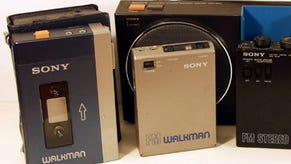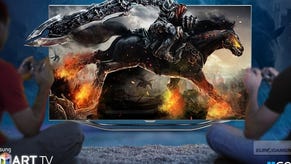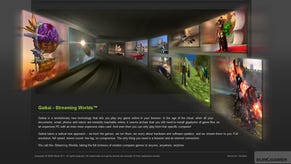Sony buying Gaikai: "It's certainly a move for PlayStation 4"
But "streaming demos an absolute first" on PS3.
No, a deal doesn't exist; yes, it does - Sony yesterday announced the $380 million acquisition of cloud streaming company Gaikai. Those puffed up promises Perry made years ago have now made him loads of money. Perhaps he was right.
But what does this mean for us? What does this mean for PlayStation? What does this mean for that other cloud streaming service OnLive? And what does it mean for Xbox 360? Digital Foundry editor Richard Leadbetter has already digested the Sony-Gaikai deal from a technical point of view. But here, we seek answers to the wider questions - and with wildly varying results. Will Sony's acquisition accidentally kill Gaikai? Will Gaikai kill PlayStation 4? And will Microsoft really make a move on OnLive? And what about Nintendo? We cover all of these topics and more below.
Great News
Andy Payne, Mastertronic boss and UKIE chairman, saw this coming for a while. He thinks it's "great news" - great news for the industry, Gaikai and Sony, "who need some good news - they need this to show they're in the game".
"Having a strong PlayStation is part of a balanced, console diet.
"It still seems like a big chunk of cash, but I'm sure if Sony Corporation had to invent its own streaming technology, and prove it, that it would probably cost on or around that kind of money. And that's probably how they've made their valuation."
Agreed, nodded Piers Harding-Rolls, senior analyst for Screen Digest. Sony needs this technology "in its locker for its future devices and platform strategy".
"What we'll see is demos followed by single-player streaming experiences. Very quickly, they'll then move into - I would hope - full online multiplayer streamed experiences. I would think that's going to be a matter of two years away."
Andy Payne, managing director of Mastertronic, chairman of UKIE
"It's a risk," he accepted. "It's not a small amount of money. But it is an essential part of their future in terms of content distribution," said Harding-Rolls.
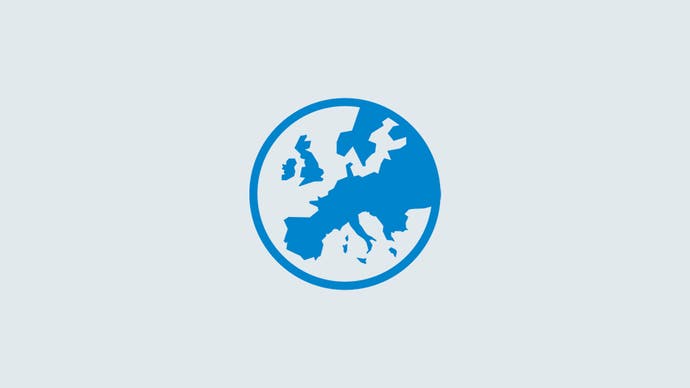
"Sony needed to make some sort of judgement about whether it could build it in-house or whether it was better to acquire. What they're paying for is not so much the assets that are involved, but it's more about getting a head-start, buying time, being able to launch the streaming services earlier than if they'd just tried to do it in-house."
And putting a value on that is more difficult, he said.
Nicholas Lovell, industry commenter and owner of Gamesbrief, isn't surprised by the deal. He always thought Gaikai would be acquired and either Sony or Microsoft would do it. "Sony seems to be much more open to new ways of business," he said.
But $380 million is "a big bet", and Lovell isn't convinced Sony will make a go of Gaikai, of cloud-streamed gaming. In fact, he thinks Sony will kill Gaikai as a business, but not on purpose.
"This is what I think is the likely outcome," he said.
"Sony buys it, because cloud gaming is an existential threat to a core part of their business. They then try and integrate it, but they integrate it Sony style - they integrate it and all of a sudden they have to work with the Sony Online Networks, and it has to be integrated into Bravia, and it will only work on certain televisions and not others, and it will have to carry PlayStation branding and you won't be able to use it if you're not building a PlayStation game.
"Sony will do some interesting things, but in the end there is a realistic chance that the attempts to 'corporatise' Gaikai and switch it in to the infrastructure of Sony - both technical and business - will take a lot of what its success has been."
Still, that doesn't mean this represents a bad deal for Sony. Acquiring competitors is commonplace in the wider world of business. They're no longer a threat, regardless of if they succeed. See Facebook's $1 billion acquisition of Instagram, Lovell urged us.
"I don't think Kaz Hirai is sitting there and thinking, 'This thing is dangerous, let's buy it and kill it.'" Lovell clarified. "It's the institution that kills it.
"There's a realistic chance this will be a 'what did Sony do?' story in five years' time. And that still doesn't mean it was stupid deal today, just to be clear. That still doesn't mean it was stupid. The fact they killed it doesn't mean it was stupid.
"They brought it in, they tried to do something with it, it didn't fit with their corporate structure. Meanwhile, they bought themselves an enormous amount of time when the cloud gaming threat to their existing business model has now been pushed back a couple of years. That might be worth more money."
PlayStation 3
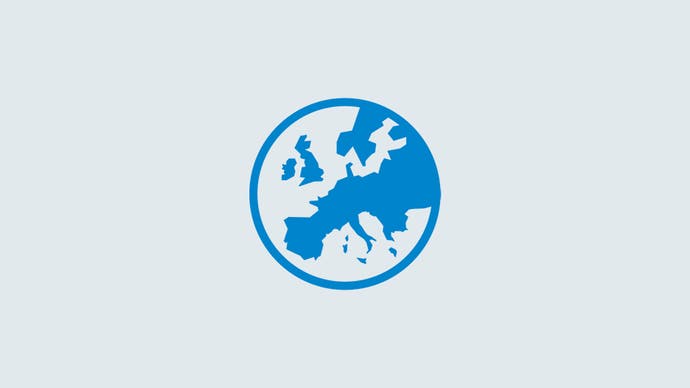
Future ramifications aside, how can the Sony-Gaikai deal affect the era of PlayStation 3? How will this immediately improve Sony's proposition?
"It's certainly a move for PlayStation 4. That absolutely makes sense. If I were them, I would try to find ways to experiment with it on PlayStation 3, so you make your mess-ups [then]."
Nicholas Lovell, founder, Gamesbrief
"Streaming demos are an absolute first - that's a baby step," Andy Payne said.
Gaikai could also help deliver firmware updates - something Payne's seen PS3 owners "whinge" about before - and "quite rightly".
"What we'll see is demos followed by single-player streaming experiences. Very quickly, they'll then move into - I would hope - full online multiplayer streamed experiences.
"I would think that's going to be a matter of two years away."
But a lot of that is dependent on broadband quality and breadth improving in the UK - "and that shouldn't be underestimated", Payne pointed out.
Demos will be at the front of Gaikai queue, Lovell agreed. But he sees PlayStation 3's role in the Sony-Gaikai deal as more of a test bed - a place for features to be experimented with before PlayStation 4 arrives.
"It's certainly a move for PlayStation 4," he stated. "That absolutely makes sense.
"If I were them, I would try to find ways to experiment with it on PlayStation 3, so you make your mess-ups [then].
"I would be working to get Gaikai-style stuff, preferably paid for, certainly free demo stuff up on to the PlayStation 3 so that you learn about all of the big mistakes.
"If the PlayStation 4 comes out and you can't make the cloud work on it, the pundits will be queuing up to say 'this is a disaster'."
"You should make your mistakes relatively cheaply."
PlayStation 4
"It was always a fairly established premise that the next-generation of consoles would start off with a hybrid approach in terms of the distribution of content - you still have physical media, but you probably have downloads and somewhere along the line, streaming services would come into play," commented Piers Harding-Rolls.
This clearly stands Sony in good stead.
For PlayStation 4, this could mean "no waiting for a disc, an install, a patch, a download, some loading time, and all of that other stuff - you're just straight in, playing," Nicholas Lovell said. "And that's going to be really, really good."
But Andy Payne has a more drastic vision of the future for Gaikai and PlayStation 4, and whether we will need "a box or what we used to call a PlayStation" at all.
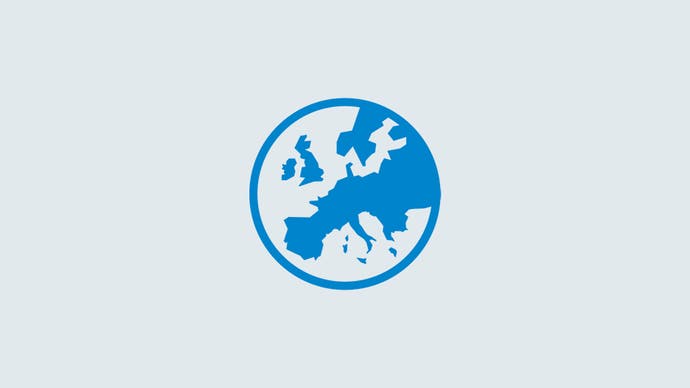
"Does this give Sony a way into the living room through Sony TVs, or indeed through anyone else's TV, without their necessarily having to be a PlayStation attached to the end of the wire? That's a big question. And it's not a question that's going to be answered now."
Andy Payne
"Does this give Sony a way into the living room through Sony TVs, or indeed through anyone else's TV, without their necessarily having to be a PlayStation attached to the end of the wire?" he asked. "That's a big question. And it's not a question that's going to be answered now.
"Does that give Sony a route to not having to sell you, as a consumer, a box or what we used to call a PlayStation? That's the question. And over the next 24 months, that will play out."
Yes, he's insinuating the radical - that this deal will impact the very existence of PlayStation 4.
"I would say this has to impact [PS4], because from what we're all hearing, PlayStation 4 isn't around a corner soon. It's a way away," Andy Payne said.
"These things are incredibly expensive to bring to market, not least just the manufacturing and stocking of these devices. If we're moving to clouds, it may be that Sony concentrates its PlayStation brand and its Bravia brand - maybe that's where we can see some convergence."
After all, Sony's an electronics company. They've already got everything under one roof - just like Toys R' Us.
"They're not like Apple who might buy a TV company. They're not like Microsoft who might have to go and buy an electronics company. They've already got one," Payne said. "They're experts in the consumer electronics field, much more so than perhaps Microsoft and Nintendo are. That's their heritage."
PlayStation TV
Gaikai and OnLive both revealed deals recently to be installed on smart TVs. Extrapolate what that could mean for Sony, and hey presto, it's PlayStation TV. If the 'Gaikai to enable backwards compatibility on PS3' rumour was true, and there's every likelihood now that it was - then offering PS2, PS3 and maybe even PS4 games on TVs can't be too far behind.
"I do think that smart gaming is coming to the telly," admitted Lovell. "What worries me, though, is that if it's only coming to Sony tellies, I think it's going to die. I don't think that works.
"The secret has to be to make PlayStation into a gaming brand, a gaming service, similar to Sky, rather than similar to PlayStation, whereby if you want to play our cool games, you've got to buy our Bravia.
"That," he urged, "would be a disaster."
Like Sky, the PlayStation service may need a piece of hardware like a Sky box. But like Sky, you'd also be able to get that service in other ways - through cable, for example.
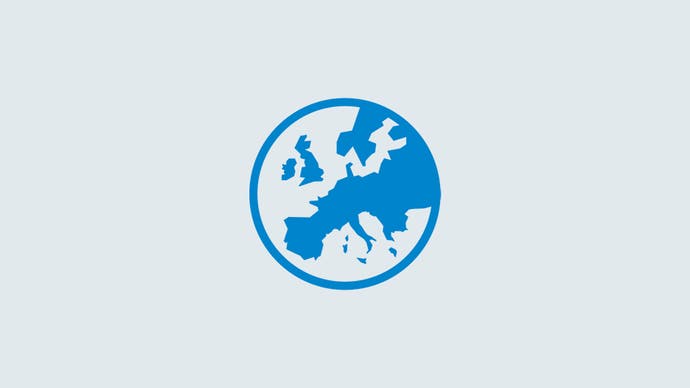
"That's what I think Gaikai is likely to be at the heart of - the evolution of PSN and the Sony Online Network," he said.
Using Gaikai to roll out PlayStation to TVs means "a broader, global proposition across a number of devices", remarked Piers Harding-Rolls. That doesn't have to mean "seriously" competing with a "specialist" console experience, "which will have its different offering as well".
"The big question that faces Sony, really, is how they tie all their devices together. And Gaikai is a building block to enable that," said Piers Harding-Rolls.
"They will have a streaming component to Xbox ASAP. One would know that it will definitely be, I'm sure, announced very soon. One has to hope that Nintendo have got something up their sleeve."
Andy Payne
OnLive
OnLive told Eurogamer at E3 that "we talk to pretty much everyone" - i.e. we talk with the console platform holders. But to what degree? Now that Sony and Gaikai are ruled out of the equation, will Microsoft buy OnLive?
"If I were OnLive, I'd very much hope they would," said Nicholas Lovell, "because I'm running out of press attention now. OnLive now have to make the case that Microsoft has to buy them, because there's nobody else in the market.
"But any investment banker knows that only having one possible buyer is very difficult for making a deal happen or the price to be high.
"It's good for OnLive," he stressed, "in as much as it would have raised the issue at Microsoft to much higher levels where they will be discussing this now. It's bad for OnLive because they can't pretend that Sony's going to buy them now."
There's history between OnLive CEO Steve Perlman and Microsoft. Perlman sold WebTV to Microsoft for $425 million in 1997, "by basically terrifying [Bill Gates] that the future was on telly, not on PC". But WebTV "didn't go anywhere", Lovell pointed out. "It was Khronosed."
Khronos is the Greek god who ate his babies because he was convinced they would destroy him, which one eventually did - Zeus. It's a theory applied to business, to eating competitors.
"Microsoft would definitely be having an element of Khronos to its purchase of OnLive," Lovell went on.
"Steve Perlman's got form with this. That's what I think he's doing. He's trying to follow the same strategy: build a tech that tries to terrify the big tech company, and sell it to them. That's what he's doing.
"I don't think Nintendo gets terrified in that way. There are things that worry them, but it doesn't feel to me like they're the kind of organisation that goes, 'Oh my god, there's this US-based technology company doing something interesting, we must follow the herd and buy some of that stuff.'"
That, Lovell believes, would be "very un-Nintendo-like behaviour".
"OnLive is Microsoft," he reiterated.
But Andy Payne and Nicholas Lovell aren't so sure.
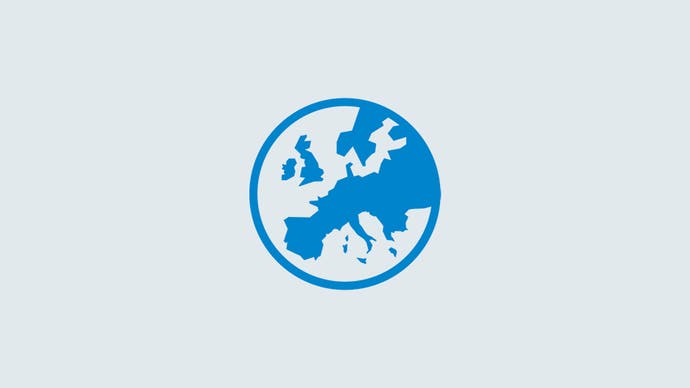
"Microsoft has already got its ball," said Payne, "they've bashed that ball around quite a fair bit, don't worry about that. They've already got their strategy well in place.
"If anything, Sony has been playing catch up. It's just that Microsoft hasn't told everybody necessarily what they're doing with their streaming service.
"Very simply," he added, "Microsoft is a technology company. This is about technology. They will have their balls nicely in a row, without any shadow of a doubt, on their offering through Xbox. They know that. It will only be a matter of time, won't it? It's an arms race.
"We're committed to delivering extraordinary entertainment experiences across devices in a uniquely connected way through Xbox, Windows Phone, Windows 8 and other popular devices, and we're looking forward to continuing to innovate in this space in the future."
Microsoft
"They will have a streaming component to Xbox ASAP. One would know that it will definitely be, I'm sure, announced very soon. One has to hope that Nintendo have got something up their sleeve."
And this could potentially be a big win for Nintendo - streamed content, that is.
"They've got an opportunity, Nintendo, if they're smart, to almost have the industry and the gamers ignore, forget, re-write history about their digital offering thus far," Payne continued.
"And they could, if they were to move into streaming services fast, get back in the game in a major way, in a digital landscape."
They could "zip up a gear very quickly".
Not only does Microsoft have a history of streaming video, observed Piers Harding-Rolls, they've also got the equipment, staff, mentality and cash to accomplish something like this themselves.
"They're pretty strongly positioned: they have the expertise, they have a huge resource of software technology staff to actually build these types of solutions. But even if they felt they needed outside systems, there are a number of streaming solutions out there," he said.
"Microsoft is building its own, massive cloud infrastructure to provide services to its clients, so already it's building its capability in terms of managing other types of content.
"I don't think it would want to acquire something like OnLive that has gone out and tried to build its own network, and try and assimilate that into its existing cloud infrastructure. It would be more a case of it building out its own infrastructure rather than acquiring someone like OnLive."
Microsoft responded to yesterday's news with a statement suggesting it sees the cloud powering Xbox, Windows and Windows Phone connectivity - and any moves it makes in the future will focus on this.
"The cloud has been a key component of our strategy and a big area of investment with Xbox for many years. Through Xbox LIVE we're serving up gaming and entertainment in the cloud to more than 40 million people," Microsoft said.
"We're committed to delivering extraordinary entertainment experiences across devices in a uniquely connected way through Xbox, Windows Phone, Windows 8 and other popular devices, and we're looking forward to continuing to innovate in this space in the future."
Nicholas Lovell concluded: "Whoever buys OnLive or Gaikai is likely to spend a long time trying to make them work. The world will move around them, and eventually they'll give up.
"That's not to say it's a bad thing to have bought them in that process, but I don't think that it'll prove to be transformational."




